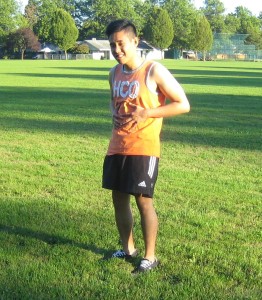Pancreatitis involves swelling and inflammation of the pancreas. The pancreas is positioned behind the stomach and releases enzymes that help with the digestion of food and regulates the breakdown of sugar in the body.
https://www.youtube.com/watch?v=3lMehvXSJWU
The condition can arise quickly or can be a chronic issue. The treatment is based on whether pancreatitis is acute or chronic.
Types of pancreatitis
Acute
- The start of this type is usually abrupt and the inflammation settles within several days once treatment is started.
Pain that wraps around the upper body along the back in a band-like pattern. - Gallstones are the usual cause which are small, solid masses that form from bile.
- Alcoholism is also a contributing factor to the development of the acute type
Chronic
- This type involves inflammation of the pancreas that occurs repeatedly. The individual might end up with lasting damage to the pancreas.
- Scar tissue forms from the long-standing inflammation. The extensive scar tissue might cause the pancreas to stop producing the normal number of digestive enzymes, thus there is difficulty in digesting fats
- Alcohol abuse is the usual cause as well as autoimmune and genetic ailments such as cystic fibrosis
What are the indications?
Individuals who have acute or chronic pancreatitis suffer from upper abdominal pain as the main symptom. In some chronic cases, there is inflammation revealed on the imaging scans but otherwise might show no symptoms.
The other symptoms of pancreatitis might include:
- Indigestion
- Pain that wraps around the upper body along the back in a band-like pattern
- Hiccups
- Nausea or vomiting
- Bloating with a distended stomach
- Abdominal tenderness
- Unintentional weight loss
Management
The treatment for acute or chronic pancreatitis involves hospitalization. As the key to the digestive process, the pancreas is required to heal. Due to this, the individual is given fluids and nutrition intravenously or via a nasogastric feeding tube.
Returning to an oral diet is based on the condition of the individual. Some individuals feel better after a couple of days while others require a week or two to heal properly.
- Diet – a low-fat, healthy diet has a vital role in recovery from pancreatitis. It is vital to eat small meals throughout the day to reduce stress on the digestive system. It is best to stick with low-fat dairy and increase the intake of fluids to keep the body hydrated. In addition, vitamin supplements are given to ensure that the body gets the nutrients it requires.
- Surgery – this might be required to correct the underlying cause of pancreatitis especially gallstones or other blockage in the bile ducts.
- Lifestyle changes – it is recommended to stop smoking and drinking alcohol to allow rapid healing.
- Alternative pain control measures – an intravenous pain medication might be administered in the hospital. Other measures include yoga and relaxation exercises such as meditation or deep breathing if the conventional measures are not effective in alleviating the pain.

